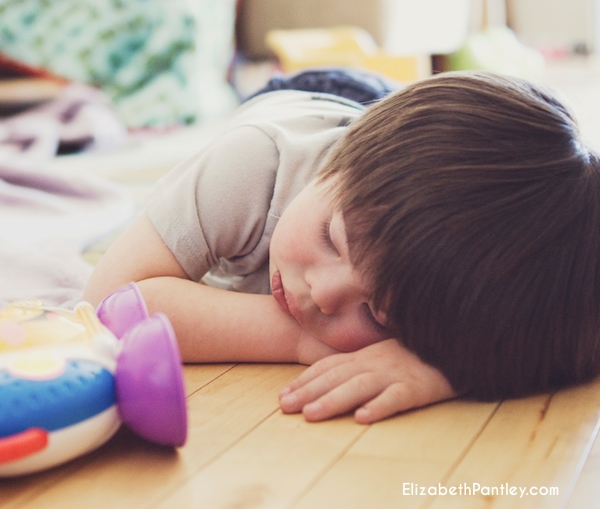
Does your child ever walk around the house in his sleep? Or do you have a nighttime chatterbox? If so you probably wonder if you need to do something about these nighttime activities. Here's information and tips.
Guess what?! Sleepwalking and talking is common
It's really normal! Nearly a third of children will have at least one sleepwalking episode. Boys are more likely to sleepwalk than girls. Sleepwalking tends to run in families, so if your parents, or your spouse’s parents, have a few humorous stories to embarrass you with, it’s likely you’ll have some stories of your own about your own children. (Very often these stories have to do with a little sleepwalker using a very odd object as a toilet.) Sleep talking is even more common than sleepwalking, and about half of all children will have a few midnight jabbering sessions. Get a recorder to capture the moment!
What To Do With Your Sleepwalker
If you wake to find your child wandering around the house, gently carry him or lead him back to bed. You don’t have to talk to him, since he won’t really hear you. Most often your child will simply fall right back to sleep once he’s resettled in bed. Sleepwalking isn’t a sign of any emotional or physical problem, and most children simply outgrow it. The worry for parents is that their child will wander outside, fall down stairs or trip over something and get hurt, since sleepwalkers aren’t aware of exactly where they are or where they are going. If you have a little sleepwalker you should take safety precautions, such as keeping all outside doors and windows locked, using window guards, installing child gates at the tops of stairs, and making sure that your childproofing is complete throughout the house.
Sleep talking
Lots of kids mumble or make sounds in their sleep, and some carry on entire conversations with themselves. Some sleep talkers use a quiet voice but others can be quite loud and emotional. Most sleep talking is amusing, brief and harmless. If the talking isn’t bothering anyone else you don’t need to do anything about it. If your little sleep-talker is loud and episodes are frequent and bothersome to other sleepers you may want to consider some of the remedies in the next section.
Can you stop your child from sleepwalking or sleep talking?
The following tips may be helpful in reducing the amount of walking or talking your child does in his sleep. There is no foolproof solution, since these are normal sleep-time issues, but since the following ideas are based on general rules for healthy sleep it won’t hurt to try them.
-
- Some studies have found that children who are not getting enough sleep are more likely to sleepwalk or talk, so it’s wise to make sure that your little one is getting enough sleep hours - both for night sleep and naps.
- Inconsistent sleep times can contribute to sleepwalking and sleep talking, so consider setting a specific daily bedtime and awake time for your little night wanderer.
- Another possible cause of sleepwalking and talking is fatigue or stress. Perhaps helping your child learn some relaxation techniques or coping skills may be worth trying.
- Occasionally sleep walking is brought about in response to a change in the child’s life, such as moving, parent’s divorce, attending a new school or another major event. These are temporary situations and once your child is settled in to a new routine the sleep walking should disappear.
Need more toddler sleep tips? The No-Cry Sleep Solution for Toddler and Preschoolers has more gentle sleep tips like the ones above!



























